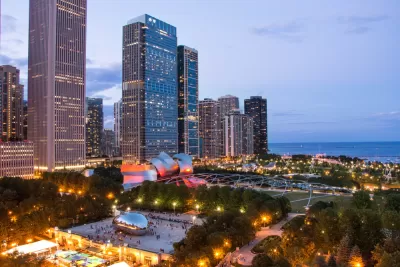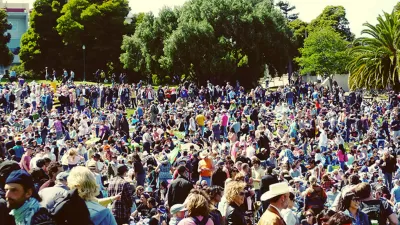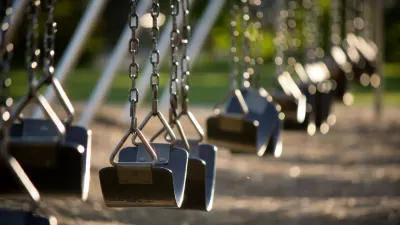A new report can help park developers and managers assess quality, park by park and systemwide, to make investments and address disparities in access to high quality parks.

What makes a park "high quality"? The Urban Land Institute (ULI) recently released a report to answer this question. Based on interviews with parks professionals and other experts from around the country, the report presents a framework for park quality that can help all park developers and managers assess quality, park by park and systemwide, to make investments and address longstanding disparities in access to high quality parks.
To help define park quality, ULI hosted a two-day workshop in Nashville in April 2019 to get input from nearly 30 leaders in parks and recreation. Attendees identified cities that had successful programs or processes in place to evaluate the quality of their parks or park systems, and interviews were conducted with parks and recreation department staff in a number of these cities, along with other experts.
Findings from the interviews were analyzed to create a framework of five key characteristics of quality. Specifically, high quality parks:
- Are in excellent physical condition.
- Are accessible to all potential users.
- Provide positive experiences for park users.
- Are relevant to the communities they serve.
- Are flexible and adaptable to changing circumstances.
For more information, please read the report.
FULL STORY: Five Characteristics of High-Quality Parks

Study: Maui’s Plan to Convert Vacation Rentals to Long-Term Housing Could Cause Nearly $1 Billion Economic Loss
The plan would reduce visitor accommodation by 25,% resulting in 1,900 jobs lost.

North Texas Transit Leaders Tout Benefits of TOD for Growing Region
At a summit focused on transit-oriented development, policymakers discussed how North Texas’ expanded light rail system can serve as a tool for economic growth.

Using Old Oil and Gas Wells for Green Energy Storage
Penn State researchers have found that repurposing abandoned oil and gas wells for geothermal-assisted compressed-air energy storage can boost efficiency, reduce environmental risks, and support clean energy and job transitions.

Private Donations Propel Early Restoration of Palisades Playground
Los Angeles has secured over $1.3 million in private funding to restore the Pacific Palisades playground months ahead of schedule, creating a modern, accessible space that supports community healing after recent wildfires.

From Blight to Benefit: Early Results From California’s Equitable Cleanup Program
The Equitable Community Revitalization Grant (ECRG) program is reshaping brownfield redevelopment by prioritizing projects in low-income and environmental justice communities, emphasizing equity, transparency, and community benefits.

Planting Relief: Tackling Las Vegas Heat One Tree at a Time
Nevada Plants, a Las Vegas-based nonprofit, is combating the city’s extreme urban heat by giving away trees to residents in underserved neighborhoods, promoting shade, sustainability, and community health.
Urban Design for Planners 1: Software Tools
This six-course series explores essential urban design concepts using open source software and equips planners with the tools they need to participate fully in the urban design process.
Planning for Universal Design
Learn the tools for implementing Universal Design in planning regulations.
Ascent Environmental
Borough of Carlisle
Institute for Housing and Urban Development Studies (IHS)
City of Grandview
Harvard GSD Executive Education
Toledo-Lucas County Plan Commissions
Salt Lake City
NYU Wagner Graduate School of Public Service





























